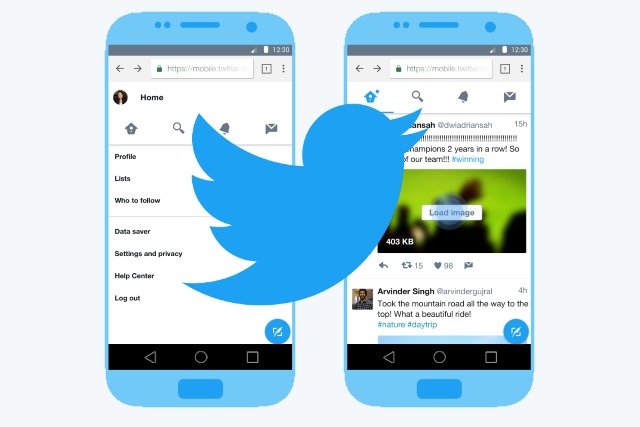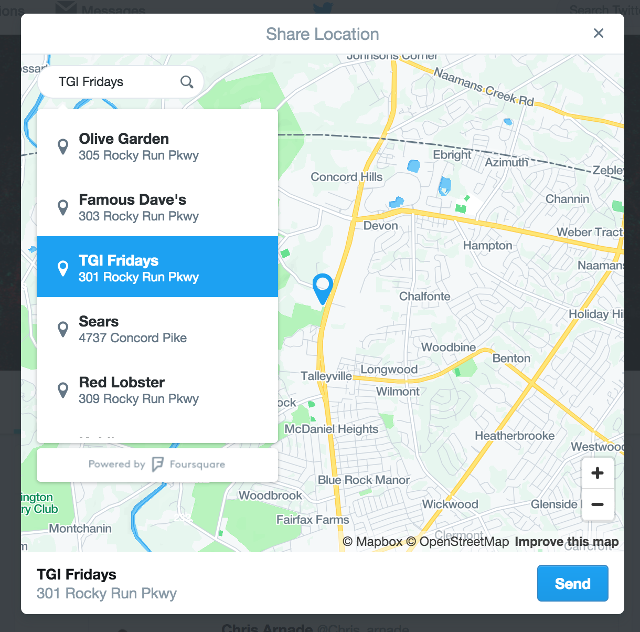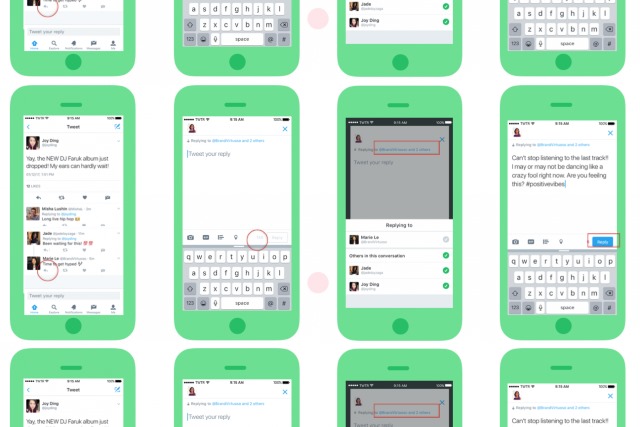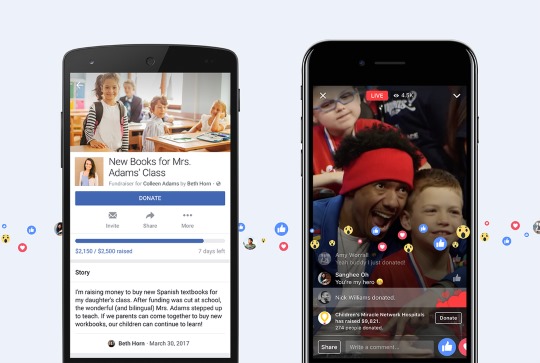
Government drops demands to unmask @ALT_USCIS after Twitter files lawsuit
Just one day after Twitter filed a lawsuit to block the US government from forcing it to reveal the identity of who is behind the @ALT_USCIS account, the government has dropped its request.
News of the lawsuit saw the account's follower count more than quadruple as Twitter users jumped to see what was being posted by what are believed to be United States Citizenship and Immigration Services employees. As a result of the government dropping its request, Twitter has stopped the lawsuit.

Facebook goes on the offensive against fake news and aims to educate users
Having introduced various tools to fight fake news, the next weapon in Facebook's arsenal is education. Over the next few days a large "Tips for spotting fake news" banner will appear at the top of news feeds in 14 countries, but the approach it is taking is unlikely to have much impact on those most influenced by, and most likely to share, fake news.
Like Google, Facebook is taking steps to tackle fake news. The social network has already announced a raft of measures aimed at stamping out the problem, but now it is trying to not only educate people about how to spot fake news, but also to stem the spread of fake news, and to disincentivize the practice.

Facebook's AI assistant, M, now offers suggestions in Messenger
Promising to "make your Messenger experience more useful, seamless and delightful," Facebook has launched suggestions from M to everyone in the US. M is the social network's AI assistant, and iOS and Android users can now benefit from behavior-based suggestions for content and actions as the assistant analyses conversations.
What this means in practice is that M might notice that you are chatting with a friend about sending them some money for something. Rather than waiting until you meet them in person, M will spring into action and suggest that you might like to send the money through Messenger. Other possible suggestions relate to Uber and Lyft, stickers, polls and locations.

Twitter Lite offers a faster Twitter experience on slow connections with Data Saver mode
After the launch of the data-saving YouTube Go beta by Google, Twitter has announced the launch of Twitter Lite. In a similar vein to YouTube Go, Twitter Lite is an acknowledgement that a huge number of people around the world are getting online using a 3G -- or even a 2G -- connection.
Twitter Lite is not an app, but a lighter version of the mobile version of the Twitter website. With no app to download, it can be used on any smartphone or tablet and an additional Data Saver mode further reduces bandwidth requirements and helps to speed up the overall experience.

Twitter enables direct message location sharing for businesses
Social media can be a fabulous tool to help businesses engage their customers. Nowadays it isn't enough to simply offer a quality product or service -- it is about creating memorable experiences. By offering outreach from services like Facebook and Twitter, a business can seem more friendly -- something that may have a positive impact on sales or brand opinion. Not to mention, young adults that grew up with text messaging may be turned off to making voice calls, making social media indispensable for millennials.
Today, Twitter is improving the customer interaction experience for businesses with a really cool new feature -- location sharing through direct messaging. A business can now more easily share its location with a customer, or request a location from them, using the direct message functionality.

Poor social network password habits put business data at risk
In an increasingly connected world few aspects of our lives exist in isolation. As a result, bad password habits on social networks can put work accounts at risk.
A new study by account management solutions company Thycotic reveals that 53 percent of users haven’t changed their social network passwords in more than a year -- with 20 percent having never changed their passwords at all. This not only means their social network accounts are at risk but if the same password is being used elsewhere, other accounts are vulnerable too.

Twitter tweaks replies to give you more characters and greater clarity
Recent changes at Twitter have focused mainly on clamping down on abuse and trolling, but there have also been adjustment tweaks that allow users to send longer messages. Now the site is introducing another change that effectively means you are able to send longer replies to people.
The latest change does not mean that you are given more than 140 characters to play with, but the 140 character limit is now put to better use. In short, all 140 characters are available for you to reply with as @usernames no longer count towards the total.

Facebook introduces 'personal fundraisers' so you can raise money for yourself
If you need money for something, you might think about using a service such as GoFundMe to ask people to donate cash to you. But now you can turn to Facebook instead, as the social network launches a new "personal fundraiser" feature, as well as Donate buttons in Facebook Live for Pages.
As the name suggests, a personal fundraiser is a way for individuals to raise money for themselves -- or someone they know. To start with, Facebook says that it is only possible to raise money for "critical financial needs" that fall under one of six headings, but this may expand over time. So how do you go about looking for donations through the social network?

Facebook Messenger borrows from Slack with Reactions and mentions
Facebook is not shy about stealing features from other messaging tools, and it's usually Snapchat that is used as inspiration. With the latest update to Facebook Messenger, it's Slack that is being borrowed from.
Today Facebook Messenger gets two new features: Reactions and mentions. These work in very much the way you would expect, and Reactions make a successful transition from the Facebook newsfeed to Messenger after having made a brief appearance to a testing group recently.

Now you can broadcast live to Facebook from your desktop or your favorite games
Facebook Live has been with us for a little while now, but it has been limited by the fact that it has only been possible to broadcast from mobile devices. Today this changes as Facebook opens up broadcasting to desktop and laptop users too.
On top of this, Facebook is adding the ability to stream from other software or external hardware. This has many uses, but the social network suggests that gamers might like to use it to broadcast their gaming sessions live online.

Facebook, Google and Twitter could face EU legal action for unfair terms and conditions, and failing to tackle scams
Having expressed concerned about privacy in Windows 10 and the scanning of Yahoo emails, the European Commission is now turning its attention to Facebook, Google+ and Twitter. The commission is concerned about a rising number of complaints from people who have fallen victim to scams on social media, and being subjected to terms and conditions that are incompatible with European law.
Having already written to the three companies back in November, the European Commission, along with EU consumer authorities, met to discuss how they will move forward. The commission says that if the proposals are unsatisfactory, "enforcement action" may be required.

Pakistan risks privacy concerns by asking Facebook and Twitter to identify users suspected of blasphemy
Pakistan is seeking help from Facebook and Twitter to help execute its incredibly strict blasphemy laws. Anyone found guilty of insulting the Prophet Muhammed, or Islam in general, risks being sentenced to death, and the country is keen to track down offenders both at home and abroad.
The two social networks have only been asked to identify Pakistanis, but the move is likely to raise concerns about privacy. Of equal concern will be not only what is deemed to be blasphemous, but who makes that judgement -- particularly when Pakistan is seeking to identify offenders in other countries.

Facebook bans devs from creating surveillance tools with user data
Without a hint of irony, Facebook has told developers that they may not use data from Instagram and Facebook in surveillance tools.
The social network says that the practice has long been a contravention of its policies, but it is now tidying up and clarifying the wording of its developer policies. American Civil Liberties Union, Color of Change and the Center for Media Justice put pressure on Facebook after it transpired that data from users' feeds was being gathered and sold on to law enforcement agencies.

Major League Soccer comes to Facebook Live
Soccer is a very popular sport globally, especially in places like Europe and South America. With that said, it is not a huge deal in the United States. True, there are fans of the sport in the USA, but its popularity comes nowhere near, say, baseball, basketball, or football. Unfortunately, this means that many televised matches do not reach all markets. Heck, some matches don't even get broadcast in the English language!
If you are a fan of professional soccer in the USA, however, I have some very good news for you. Some Major League Soccer matches will soon be broadcast on Facebook Live. These are games that would have only been broadcast on TV in Spanish, but will now get the English treatment on the social network. In other words, English-speaking soccer fans are getting increased access to the sport.

Microsoft shuts down So.cl social network
The So.cl experiment will soon be over, as Microsoft's Fuse Labs just announced that it will shut down the social network this month. Launched nearly five years ago, So.cl was meant to appeal to users wanting to share search queries and results.
So.cl seemed to be eyeing a very limited audience from the start, a belief confirmed over the years by the lack of any official figures from Microsoft about its userbase. Alexa puts So.cl's global ranking at just over 466,000 -- to put things into perspective, MySpace is currently in the 3,075th place.
